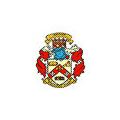Studies & Degrees in Sciences
Choose where you would like to study Sciences:
American SamoaAustraliaBelgiumBrazilCanadaChileChinaDenmarkFranceGermanyGhanaGreeceGuatemalaIranIraqIrelandItalyJapanLatviaMexicoNepalNetherlandsNicaraguaPakistanPhilippinesSlovakiaSouth AfricaSouth KoreaSpainSwedenSwitzerlandTaiwanThailandThe United KingdomThe United StatesTurkeyVenezuelaVirgin Islands, U.S.ZimbabweSciences Study Programs
Level: Undergraduate Bachelors
Location: Villanueva de la Cañada
Those interested in the science disciplines can easily pursue a course of study in multiple scientific fields. Studies in science are not typically considered one unit of study; they encompass several specific science branches, such as physics, biology, mathematical science, forensics, chemistry and dozens of other areas. Students in this field develop skills, credits and knowledge related to basic science standards and their preferred primary branch.
Science studies often require advanced education, training and hands-on experience for credible expertise. Colleges, universities, technical institutions and science academies all offer higher education courses in science studies. Many of these studies, regardless of scientific focus, will include required lab courses, internships or other hands-on training experience. Some lower degree may be achieved using online programs. Possible science degrees range from associates, bachelors, masters and PhDs.
Museums, medical institutes and some research companies are known to offer basic science courses for both beginners and practicing scientists. Educational workshops are offered at local schools, universities, nature or science centers, science camps, and even some government-funded programs.
Skills, Qualifications, and Prerequisites for Studies in Sciences
In order to undertake a science study at an accredited college, university or other higher educational institution, candidates must adhere to any standard admission requirements. This usually entails earning a secondary school completion certificate or passing a standardized aptitude test or entrance exam. Students pursuing higher degree will need to achieve at least a bachelor’s degree before attending graduate school, and many will need to pass standard admission tests – especially in the medical fields.
Publicly offered workshops, programs, camps or other training will often not require any prerequisites, unless the offered training is specified for those already working in a science field.
Those wishing to study the sciences need to possess a basic foundation in science, mathematics, physics, and other crucial subjects related to their field. As most science studies require years of work, dedication, perseverance and attentiveness are key. It is helpful if candidates can work proficiently both in independent settings and on a work team.
Skills and Qualifications Acquired from Studies in Sciences
Acquired skills in a science course study will vary depending on the scientific disciplinary focus, so it is difficult to outline specific qualifications. However, a science study will most likely allow candidates to choose from expertise in the following science areas:
- Biology and biomedical sciences
- Social Science
- Anthropology
- Astronomy and Meteorology
- Environmental Science and Ecology
- Chemistry
- History of Science
- Political Science
- Geology, Geography or Oceanography
- Computer Science
- Neuroscience
- Forensic Science
- Engineering Sciences
- Health and Nutrition
- Natural Sciences
There are possibly dozens more specific science areas than currently listed here, though these are some of the more popular majors. It is very helpful for candidates to select one department of science study, rather than try to major in science studies generally, as this field is complex, diverse and applicable in numerous professional settings.
Careers for Studies in Sciences
The field of science study is vast, and careers are as diverse as the disciplines students may study. Many scientists work in research programs in medical, geological, industrial and technological fields. Many government departments, from defense to health to agriculture, will employ many graduates from a variety of science majors. Professors, technicians, doctors, psychologists, criminal investigators, physical therapists, engineers, zoologists, product developers, salesmen and even lawyers are all known to have extensively studied the sciences.


